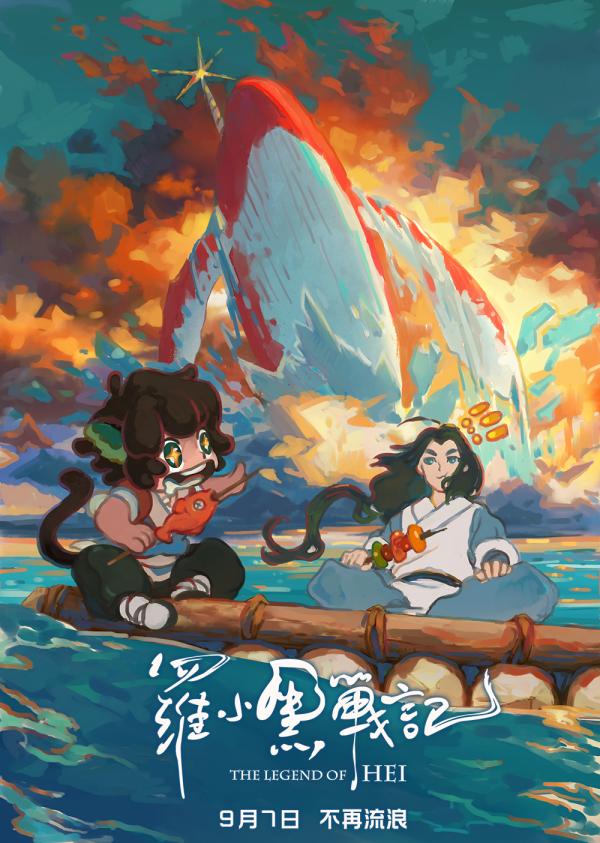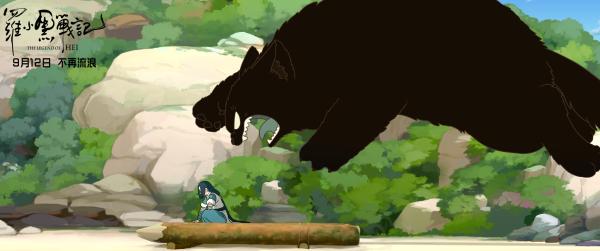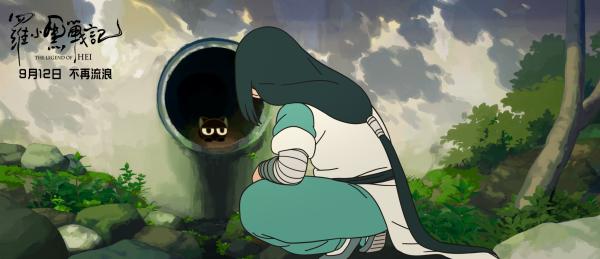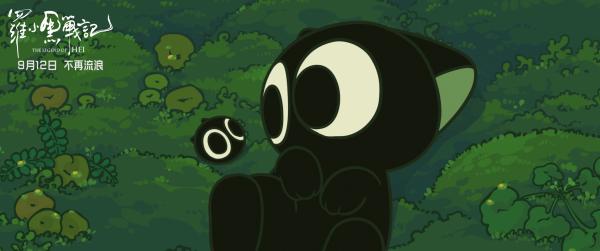The animated film "The Battle of Luo Xiaohei": Flaws don’t hide surprises
As a big movie of the traditional Chinese opera, the audience identity of The Battle of Luo Xiaohei has a significant difference: Do you have a national background?

Poster of the Battle of Luo Xiaohei
As early as 2011, independent producer MTJJ and his studio launched The Battle of Luo Xiaohei. This 2D animation was mainly broadcast on the network platform, and basically updated every two months. Therefore, in fact, the comic drama "The Battle of Luo Xiaohei" has absorbed a large number of national audiences. In bilibili alone, the number of fans of this comic drama is as high as 2.31 million. They contributed 90 million broadcasts and issued 860,000 barrage. This audience is the basic disc of big movies.
As an audience without a romantic background, like me, we don’t need to pay attention to the historical achievements of the opera, and we regard it as a domestic original animation. There is no need for the audience of the opera to struggle. The "you know" hidden stalk released by the director has not been found, and we are not going to find it.
After reading "The Battle of Luo Xiaohei", I can probably understand the high expectations of Guo Man’s audience. In the film market of Guoman, which is dominated by young children, creators such as MTJJ face serious creative themes. Behind a story of the conflict between man and demon is how to balance the competition for resources between man and nature in the historical process of urbanization.

The stills of "The Battle of Luo Xiaohei" were scheduled for September 12, so most of the promotional materials of the film were on September 12.
The Battle of Luo Xiaohei fully enjoys the nourishment of Japanese anime and the theme of the conflict between man and nature, and can see the shadows of Miyazaki Hayao’s Princess Ghost and Yan Mingjun’s Parasitic Beast, while the dazzling fighting ability of "Demon" is no different from the "Devil Fruit" of Eiichiro Oda’s One Piece.
From the perspective of originality, this nourishment can be understood as a flaw, but it does not affect its originality. In fact, the advantage of "Luo Xiaohei’s War" is precisely that it exhibits a complete and independent world view in a mature mode. In this world where shemale and shemale coexist, man is the representative of rapid evolution and encroaching on resources, while the interior of the shemale is divided into two factions. One faction is a hard-core group vying for the right to allocate resources. They advocate fighting with human beings and taking back the control of resources. The other group is doves with harmonious development. Their proposition is that transvestites coexist peacefully, share resources, and govern and coexist together.
Luo Xiaohei, the main character of the cat demon, has become the target of the eagle and pigeon factions because of his unique talent and great power to control the "field". Luo Xiaohei’s origin is also reflected. The forest where he used to live was destroyed in the rapid development of human beings, and in contact with human beings, he was infected by human kindness. Luo Xiaohei’s body is the confrontation between the two forces that tend to destroy mankind. His position and growth are in it, and the war between man and demon is also in it.

Stills of the Battle of Luo Xiaohei
MTJJ and his team don’t intend to use evasive methods in The Battle of Luo Xiaohei, but go straight to the serious and grand theme, and then consider entertainment. To my surprise, this film is different from the literary style of "Big Fish Begonia", and it is also very good in creating entertainment with comedy.
Low-level comedy relies on language and action, which is what we often say, "fart excrement and urine", while "The Battle of Luo Xiaohei" uses advanced comedy methods, and its jokes mainly come from the contrast of characters and the provocation of common sense. Infinite and Luo Xiaohei are two main characters. One character is cold outside and hot inside, and the other is an animal character who likes to be angry. This contrast is not much innovative, but the beauty is that the character of Infinite is "cold".

Stills of the Battle of Luo Xiaohei
The villain who wanted to destroy mankind was also given a "tragic experience". Its forest was destroyed by human beings, which was the motivation of his hard-core revolution. MTJJ created a group portrait of a villain, arranged some hot and cold personalities, and split positions, all of which were outside the conflict and kept the overall sense of comedy.
MTJJ seems to like the comedy method of "anti-routine", which is infinitely "cold outside" and is not even affected by the war situation. The ultimate battle between good and evil, when the villain is asked "what do you want to say", it is obviously necessary to start a long talk about "the villain’s motivation". No! The pros and cons are clean, and the villains say everything and start fighting directly. Luo Xiaohei was threatened with the cruel result of "losing his ability", and he simply said "I don’t care".
This is probably the least wordy declaration of fighting that I have ever seen. When it appears in domestic animation, people are too lazy to pay attention to its flaws and can’t help admiring it.
Of course, The Battle of Luo Xiaohei is not perfect, and the group of characters brings rich fun and creates obstacles for the audience to enter. It is hard enough to imagine an audience without a fan-chasing background, just to figure out the ability and relationship of each character. The new director’s fault of "giving too much" is irrelevant, but it can also be understood as a lack of narrative control.
Flaws can’t hide the surprise. I still hope that The Battle of Luo Xiaohei can take over from Ne Zha and bring more new ideas to domestic cinema films.